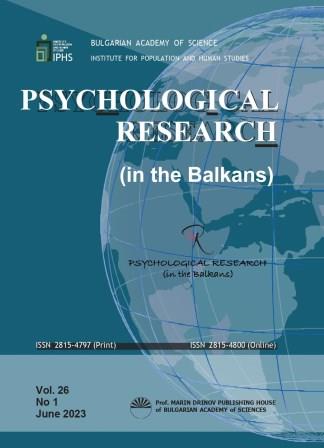Risk-Taking Propensity and Emigration Decision-Making: A Qualitative Data Analysis
Risk-Taking Propensity and Emigration Decision-Making: A Qualitative Data Analysis
Author(s): Diana Bakalova, Tsvetelina PanchelievaSubject(s): Social Sciences, Psychology, Sociology, Social psychology and group interaction, Personality Psychology, Migration Studies
Published by: Институт за изследване на населението и човека - Българска академия на науките
Keywords: risk-taking propensity; emigration; decision-making; qualitative methods.
Summary/Abstract: Risk-taking plays an important role for the psychological prediction of decision-making processes in a situation of uncertainty. The objective of this paper is to examine in-depth the association between risk-taking propensity as a personality tendency and emigration decision-making of young people. Although the correlation between risk-taking propensity and migration potential has been studied in some countries, it has not been examined to date in Bulgaria – an economy in transition. Furthermore, it was scrutinized neither in view of different risk domains (social, financial, health, ethical) nor in terms of desire, plan and preparation to move abroad as key aspects of the emigration decision-making process. The methods of in-depth calendar interviewing and qualitative data analysis were employed. Semi-structured calendar interviews (N=45) were carried out in June - November 2020 among young Bulgarian men (N=21) and women (N=24) aged 18-35 years from large, middle and small towns/villages in Bulgaria. The findings showed a positive association of risk-taking propensity and (e)migration decision-making. Respondents, identified as risk-seekers, were more likely to emigrate, compared to risk-avoiders. Social and financial domains of risk-taking turned out most closely associated with emigration decision-making. Young people, who were more willing to move away from their family, social surrounding and cultural environment, to improve their social-economic standing (education, income, career), were more positive about emigration and more likely to plan and prepare for relocation. The findings have some important interdisciplinary implications both for psychological theory and for demographic policy.
Journal: Psychological Research (in the Balkans)
- Issue Year: 26/2023
- Issue No: 1
- Page Range: 24-36
- Page Count: 13
- Language: English

